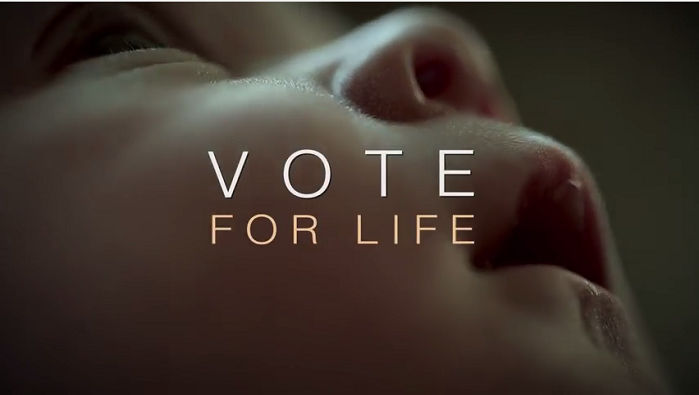We so often encourage our family and friends to vote and we feel good when they are motivated. But it is not unheard of to get to the election booth only to be met with unfamiliar names on the ballots, and with no idea what those strangers stand for. It is easy to do quick research on federal level candidates, who tend to get a lot more headlines, but local and state representatives are not as easy to come by. Many of us don’t even know who our state reps are. We are often even less prepared to vote for people running in city councils or school board races. Where do you go to find this information? How can we better prepare for the elections to avoid this problem?
Priests for Life has put together a comprehensive page to guide you as to how to find out detailed information on candidates even on your local level. The web page is VotingInfo.org.
One obvious way to gather information on a candidate is from what they say both from speeches and questionnaires they have filled out – and even more importantly, by what they do. Actions speak louder than words. If a candidate has already been in office, whether it be House or Senate, we can learn about them by how they have voted in the past. Those votes are public information. We can also take a good look at what individuals or groups have endorsed them. Do their values match yours? It is equally important to notice what memberships they have and what donations they have both received and given. Again, this is public information. When they ask for your vote- look for the causes and groups they support with their donations.
In looking at their causes, you can also find groups who rate candidates. For example, one of the key national pro-life groups – and a close ally of ours at Priests for Life – is the National Right to Life Committee (NRLC). When somebody serves in the House or the Senate, the NRLC creates a scorecard for them, based on whether they voted the pro-life or pro-abortion position on abortion-related bills. They might give a score anywhere from 0-100. The higher the score the better. A zero means they voted pro-abortion every time.
One of the many resources on our VotingInfo.org page is ivoterguide.com. It will allow you to navigate to different states, and on the state page you can request information either for races across the whole state or for races pertinent to a specific address. Tabs will appear allowing you to examine races on the federal level, the statewide level, or the local level.
The page allows you to see a side-by-side comparison of each candidate in each race. They have ratings and scorecards by organizations based on votes they have taken in the past. You can see donations, both to and from a candidate to various causes organizations, as well as endorsements they have received, positions they have taken on various issues, and a lot more.
Follow LifeNews.com on Instagram for pro-life pictures and the latest pro-life news.
To take a deeper look at how candidates voted, you will also find on VotingInfo.org a link to www.capwiz.com/nrlc/home. This is where you will find the “scorecards” for all the members of the US House and Senate, and the specific votes they took on pro-life issues. That information is available not only for the current Congress, but for the Congressional sessions of the last twenty years! At a related link you can also search for your Senators and Representative either by their name or by your zip code, and see their votes all in one glance.
Family Research Council also makes scorecards on Senate votes that are of concern to conservatives on a wider range of bills, including but not limited to abortion . It describes different bills likes transgender topics, Obamacare, tax cuts and jobs act. They offer brief descriptions on these and how candidates voted. You can view and download the PDF file covering an entire session of Congress.
And that is just the beginning of the resources at VotingInfo.org for various types of candidate information and voter guides. There is no shortage of ways to learn about candidates in your area and nationally. As part of my daily election broadcasts, I recently reviewed how to use these resources. See this broadcast about voter guides and this one about detailed candidate information. Please share this information with as many people as you can so that they can vote in an informed way this Tuesday.








